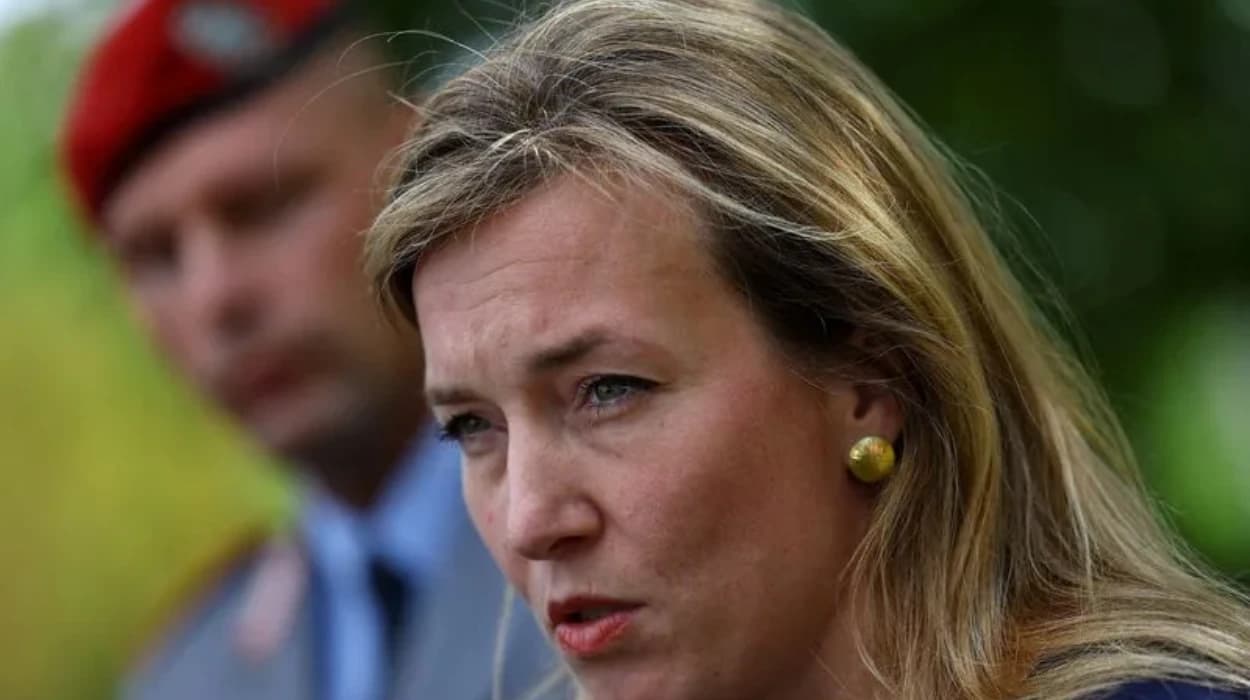Summary
- Senior German lawmaker urges Israel sanctions
consideration.
- Proposes partial suspension of weapons exports to
Israel.
- Suggests halting EU-wide political agreement with
Israel.
- The call follows a recent trip to Israel by a lawmaker.
- Tension rises as the Gaza war and humanitarian crisis
continue.
Despite the lack of significant policy changes,
Berlin's language against Israel has been more abrasive, as evidenced by the
call made by Siemtje Moeller, the deputy leader of the Social Democrats (SPD)
parliamentary caucus.
After returning from a trip to Israel with Foreign Minister Johann Wadephul last week, Moeller, whose SPD formed a government with Merz's conservatives this year, addressed a letter to SPD legislators.
"My assessment is that the Israeli government will move little without pressure. If such concrete improvements fail to materialize in the near future, there must be consequences,"
she said in the letter, seen by Reuters.
She stated that it should not be
"taboo" to recognize a Palestinian state and that Israeli claims that
aid to Gaza was unrestricted were unpersuasive.
Moeller also called for the unconditional and prompt release of the hostages that Hamas was holding. Hamas must no longer be involved in Gaza's political future, she said.
"It must be disarmed, its reign of terror must end."
With Britain, Canada, and France indicating at
the UN General Assembly this September that they are willing to recognize a
Palestinian state on Israeli-occupied land, Western countries have stepped up
their attempts to put pressure on Israel.
France, Britain, and Canada have come under fire
from Israel, which claims that their actions will benefit Hamas.
The West's ability to exert significant pressure
on Israel is weakened, according to critics, by Germany's still unduly cautious
response, which is influenced by a persistent sense of historical guilt for the
Holocaust and strengthened by pro-Israel sentiment in powerful media circles.
Hamas launched a cross-border raid on southern
Israel on October 7, 2023, killing over 1,200 people and taking 251 hostage,
according to Israeli authorities, sparking the start of the Gaza war.
Since then, enclave health officials have
reported that Israel's air and ground war in densely populated Gaza has killed
over 60,000 Palestinians. Gaza health officials report that an increasing
number of residents are dying from hunger and starvation, with pictures of
youngsters going hungry startling the world and escalating criticism of Israel
for limiting food into the enclave.
Israel blames Hamas for the suffering in Gaza, but this week it announced measures to let more relief to reach the population in response to growing international uproar. These measures included permitting air drops, announcing protected routes for aid convoys, and halting fighting for a portion of the day in some places.
What are the potential EU-level consequences if sanctions on Israel are imposed?
The EU could partially or fully suspend the
EU-Israel Association Agreement, which currently grants Israel preferential
trade benefits such as customs exemptions, visa facilitation, and participation
in programs like "Open Skies." This would disrupt economic and
technological cooperation and cause significant economic harm.
Sanctions, including barring trade with illegal
settlements or freezing financial transactions related to those areas, would
put economic pressure on Israel.
As the EU is one of Israel's largest trading
partners, this could impact Israeli exports, investment flows, and corporate
operations, especially in technology and innovation sectors.
